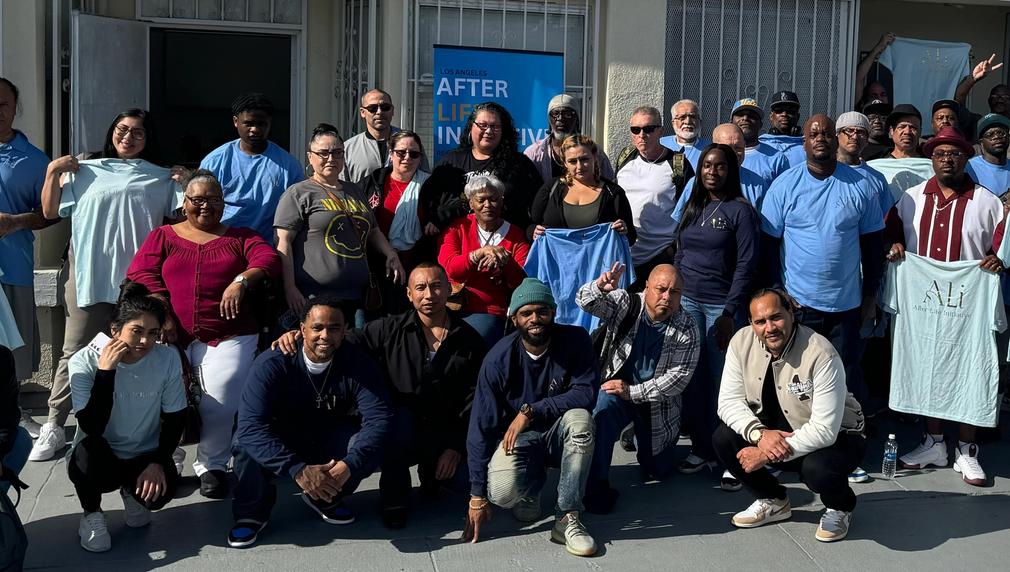Navigating Life: A Social Support Network for the System-Impacted
Our new Navigating Life program is a social support network dedicated to supporting formerly incarcerated individuals as they reintegrate into society. We also provide comprehensive services to help participants with housing, employment, and adjusting to society. Many people returning to LA County from prison lack resources, so we provide emergency financial assistance to newly released individuals who struggle to purchase basic necessities such as clothing, hygiene products, and food.

What is the primary issue area that your application will impact?
Social support networks
In what stage of innovation is this project, program, or initiative?
Pilot or new project, program, or initiative (testing or implementing a new idea)
What is your understanding of the issue that you are seeking to address?
Los Angeles County is home to California’s largest population of formerly incarcerated individuals and receives the most people returning home from prison of any county in the state. About 65% of these individuals recidivate, perpetuating a cycle of harm to the community and themselves. 70% of people experiencing homelessness in California have a history of incarceration, highlighting the correlation between release from prison and housing instability. Further, 60% of those leaving prison remain unemployed a year later.
The need for robust support systems to assist returning citizens in overcoming the myriad barriers to reintegration is critical. From securing stable housing to finding gainful employment, formerly incarcerated people require comprehensive assistance to successfully reenter into society. Without such support, they are at heightened risk of homelessness, unemployment, and recidivism, perpetuating a cycle of incarceration and societal marginalization.
Describe the project, program, or initiative this grant will support to address the issue.
Our new Navigating Life program is dedicated to supporting formerly incarcerated individuals as they reintegrate into society. Our participants receive mentorship from people who were formerly incarcerated themselves and have successfully overcome the barriers of reentry. The program currently hosts bi-monthly peer support groups that serve as a social support network for participants to learn from each other. Participants will also join monthly wellness outings such as hikes, runs, yoga, and meditation to enhance physical and mental well-being while fostering positive social interactions. Healing circles are available for participants struggling with emotional intelligence, anger management, mental health management, societal and cultural understanding, effective communication, resistance to negative influences, relapse prevention, and meeting probation/parole requirements.
We will provide comprehensive wraparound reentry services to ensure a holistic approach to reintegration. This includes workforce development initiatives designed to help participants become employable post-incarceration through resume building workshops and interview technique training. Many people returning to LA County from prison lack resources which can lead them to resorting to crime to meet their needs, so we offer emergency financial assistance to newly released individuals who struggle to purchase basic necessities such as clothing, hygiene products, and food.
Describe how Los Angeles County will be different if your work is successful.
After Life Initiative envisions a Los Angeles County where all people can thrive, regardless of their background. System-impacted individuals often face massive stigma and may be shunned by the community they once were from. By growing and scaling our Navigating Life program, we will establish a crucial social support network for individuals returning from incarceration. This network, as it grows to support people throughout the County, will play a key role in improving public safety and issues regarding individuals who are returning to the community after incarceration. With LA County’s high recidivism rates, more investment into this marginalized and at-risk population is very needed. We believe our strong social support network, supportive services, and provision of basic needs will significantly improve the outcomes of Los Angelenos returning from incarceration, increasing public safety and reducing crime rates for a better Los Angeles for all.
What evidence do you have that this project, program, or initiative is or will be successful, and how will you define and measure success?
This early stage project will define success based on our participants’ achievements of reentry milestones that address evidence-based risk factors for re-offending and are shown to reduce recidivism. This will be measured by the percentage of participants who obtain Right to Work documents, the percentage of participants who obtain employment, the percentage of participants who obtain stable housing, the percentage of participants who successfully complete parole or probation, as well as the percentage of participants who recidivate or have parole/probation violations. Participants will also be administered an initial pre-participation survey and subsequent regular post-participation surveys to measure changes in feelings of self efficacy and being supported, pro-social attitudes, and readiness for a successful life after incarceration.
Approximately how many people will be impacted by this project, program, or initiative?
Direct Impact: 120.0
Indirect Impact: 9,720,000.0